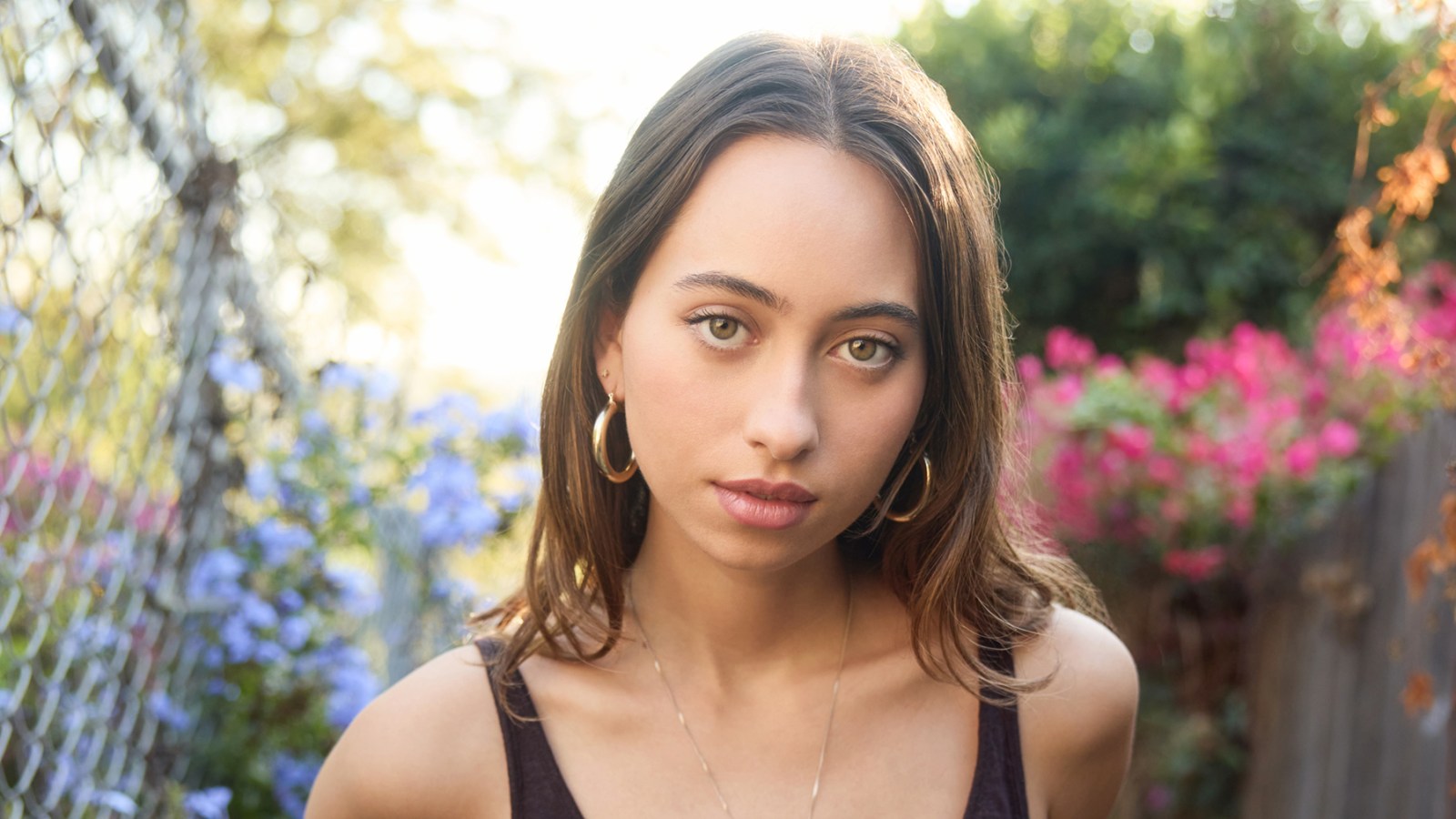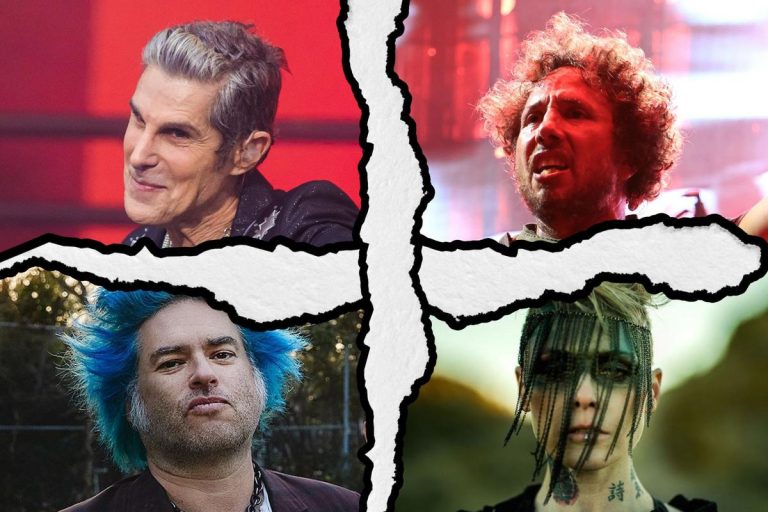T
here’s no fucking way I want to die on stage in my last song,” Sofía Valdés says.
It’s not that she has an irrational fear of performing or anything like that; Valdés’ career as a musician is more fated than most. She’s the great-granddaughter of two legendary Latin music icons, Cuban musician Miguelito Valdés and Panamanian singer Silvia de Grasse, who both died during or shortly after separate onstage performances in 1978.
“[My great-grandfather] had a heart attack. And my great-grandmother, she left and then she passed away right after her show,” Valdés tells Rolling Stone on a recent video call from Los Angeles. While details of de Grasse’s death at 56 years-old are unclear, Valdés’ great-grandfather famously suffered a mid-performance heart attack in Colombia. Celia Cruz even referenced the tragic event in her memoir: “Like Miguelito Valdés, I want to bid farewell to life, while on stage,” the Queen of Salsa wrote. Valdés’ great-granddaughter doesn’t feel the same. “I’d rather die with my family around me,” she says.
Even as Valdés, 24, recounts her ancestors’ tragic endings, she’s youthfully animated from the balcony of her boyfriend’s apartment in L.A. She talks with her hands and widens her hazel eyes, complemented by the green Ralph Lauren plaid sweater she is wearing. “They gave so much that at some point they forgot about themselves,” Valdés says about her great-grandparents. She lowers her voice: “I want to give my all to music, but I don’t want to lose myself in it.”
Sofía Valdés in Los Angeles, October 2024.
YURI HASEGAWA for ROLLING STONE
Professional musicianship was actually discouraged in her family for decades. Her father’s parents forbade him from pursuing music after they witnessed firsthand how Miguelito and De Grasse sacrificed their lives for their art. But Valdés is breaking the generational pattern. She specifically credits her mother for encouraging her to learn guitar and keep writing songs in her teens. “Instead of trying to push for me to be something that I was clearly not, she started watering where she could see that there was a lot of talent,” Valdés says.
Valdés took the first step in making her dreams come true when she bravely left Panama at 15 to attend Michigan’s renowned boarding school Interlochen Arts Academy. At Interlochen she learned English and honed her craft before moving to London where she performed throughout the city’s bar scene. She began sharing her unique blend of alternative pop and Panamanian folk-inspired melodies in 2019, when she was a student at the prestigious Liverpool Institute for Performing Arts school in London. In 2020, Valdés signed to Warner Records. Her debut EP, Ventura, came out a year later.
A dreamy vision with the power to transport listeners to the shores of Panama, Ventura introduced Valdés’s soulful, Norah Jones-like voice and her commitment to her roots as she folded in Caribbean percussion in the vein of Tamborera, the Panamanian folk genre her great-grandmother sang. Since then, the singer has continued to develop a fanbase online with a slate of bilingual singles and EPs. Last year, she dropped the EP Silvia, named after her great-grandmother, which acted as a teaser for her debut album.
The full-length project came in October. Titled Sofía Valdés, the LP showcases both her vocals and innate talent as a lyricist and producer. When we talk on Zoom, Valdés is surprised to learn her self-titled project turned a month old that day. “Oh. My. God,” she says, enunciating every word before plotting an Instagram post for the news. The excitement is years in the making; Valdés first began writing songs for the LP back in 2022. “At some point, my biggest dream was for this to come out,” she says.
Valdés enlisted help from Rosalia’s Motomami producer Michael Uzowuru along with Carter Lang and Alex Goose. Building on top of 2023’s initial tracklist, five new songs round out the album to reflect a vast sonic library from jazz to bossa nova to R&B and alternative pop. It all mixes together into tranquil, acoustic-guitar driven songs with Valdés’ refreshing voice front and center. Accordingly, Valdés called up an eclectic mix of collaborators, including Cuco, Dannylux, and Brazilian composer Arthur Verocai. “I just wanted Latin artists in this entire project,” she says. The Cuco track “How’s That Working Out for You?” offers a bold pop side to Valdés while “Lento” is a soft ballad driven by the singer’s heavenly harmonies with Dannylux. Each track centers Caribbean percussion.
Of the newly released songs, “Tacones Por La Puerta” hits the hardest as Valdés directs tough questions to her matriarchal family over Verocai’s haunting string arrangement. The effect is reminiscent of Leonard Cohen’s “Chelsea Hotel #2.” Valdés sings “¿Por qué no me ves? / Si hago todo lo que me pidas/ Vivo a tus manos cansada,” which translates to, “Why don’t you see me? / If I do everything you ask of me/ I live tired in your hands.” She ends the song with the somber realization that she’s more like her mother and grandmother than she realizes. “We’re the same, even though we try so hard to sometimes repress who we are and where we’re from,” she says. “It’s like, ‘Girl, that’s going to creep back up. It’s not going to go anywhere, so might as well just treat it with love.’”
Valdés’ life as a Panamanian immigrant living abroad heavily informed the LP. On “Easy,” she writes about the challenging time in 2022 when she needed to find housing in Los Angeles, where she’s been living since 2021. “It’s just tough to move somewhere else where you literally have no family, no one, and you’re out here trying to defend yourself and fend for yourself every single day,” she says. Even as a musician with the support of a major record label, she still struggled to apply for apartments and spent four months staying with different friends.
Now, the singer-songwriter shares a place with roommates in Lincoln Park. “When I got my first bedside table, it was so emotional for me because I was like, ‘This is mine,’” Valdés says. “There’s nothing that makes me happier.”

Sofía Valdés in Los Angeles, October 2024.
YURI HASEGAWA for ROLLING STONE
The pressure to find housing was compounded by her desire to succeed in the music industry. She didn’t want to disappoint her family back in Panama who have pitched in emotionally and financially as Valdés built her career. “That’s why I also felt the need to really be strong in all those moments, because I would look back and I see my family and friends all sacrificing themselves and their comfort for me to go be a singer.” She still can’t believe the support she has received despite following an unconventional path, and shakes her head before exclaiming, “That’s ridiculous!”
But being a singer feels like destiny to Valdés. Just yesterday, she wandered into a bookstore and was browsing through coffee table books when she turned to a page that featured her great-grandfather’s records. Valdés couldn’t help but marvel at the find. “He really did everything,” she says. As much as the young singer wants to become a star, she can see the bigger picture. “This music thing can go away in a second,” she says, before explaining how she refuses to let her passion consume her. “There’s a lot of unhealthiness around music that I think hopefully with time, things will start changing.”
Valdés might just be part of that transformation. In the past four years, she’s worked on setting boundaries in the industry. “I’m not a people pleaser anymore,” she says. Instead, she’s finding the balance between focusing on her music and fulfilling her desire to travel, spend time with her loved ones, and remain in the moment.
At one point in the call, she flips her camera to share the gorgeous view of L.A.’s Mount Washington in front of her: “I’m just grateful for where I am right now.”




Leave a Comment